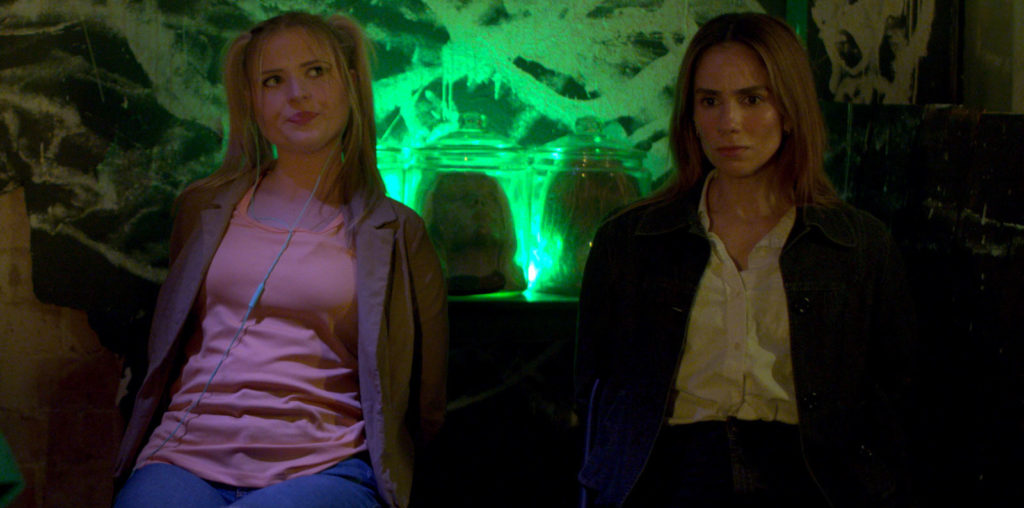
I just got around to seeing American Beauty.
Great film, disturbing premise.
What I found disturbing about it was that Hollywood, my wonderful Hollywood my lyrical, fantastical Hollywood, my muse, my own 35mm land of Oz since I was a child, wants me dead.
Hollywood, who sought to entertain and enlighten me, wants me confused, lonely, disenfranchised and ultimately dead, all because I have ventured to live past 40.
Kevin Spacey, ah what a wonderful portrayal of the average American male in the protracted eyes of Hollywood. He has cars and teenagers on his mind; he’s a fantasist who sees rose pedals spilling forth from cheerleader’s open blouses. He’s a man in search of meaning (who finds it in the past, old cars, old music, old job) in the meaningless world created by the creativity by committee of Hollywood mavens with neither the recent experience with, or a shred of sympathy for the environment they seek to explore.
Still it is a great film.
I have no problem with films, which American Beauty is, an allegorical portrayal of sexual obsession played out with restraint and sending a message, in the main thrust the film is powerful, humorous and rings true. My problem lies with the ending, which is where I get the idea that Hollywood prefers me dead.
By the end of the film, Kevin Spacey’s character has an epiphany. For those of you who have never had one: an epiphany is a moment of realization that your life is not so bad. In American Beauty, Spacey’s epiphany comes with a price, a tragic one at that. Just when he comes to his senses — when the illusions our society has spun before his eyes become unraveled — he is murdered by an off shoot of his machinations and his innocent involvement in a side story. What is this movie saying?
It says: don’t come to your senses, you are better off dead. His misguided neighbor shoots him and he is left in a pool of blood with a big old smile on his face. His sub-Gen-X neighbor boy (a narrative representation of the film’s target audience and the youthful preoccupation of its creators) smiles down upon him, no sadness, no outrage, just a happy smirk on his face. Happy for what? He’s happy that his poor over forty neighbor has been released from the torture of being over forty. Released from decay and regret, from replacing one delusion with another, pleased that the bleak surroundings where he has searched and searched for beauty within (a plastic bag buffeted about in the wind, the film’s most sacrosanct symbol) has yielded a horrible solution that simplifies, verifies and validates his own lack of courage, self doubt and impending self loathing. He seems to expect and is almost envious of the fate, which has befallen his neighbor.
Spacey’s search for meaning, a meaning he finally grasps in death, is the film’s supposed positivist’s message. The young neighbor? He’s been the film’s only redeeming character, big, droopy, doe-eyed and innocent mired in a world of hypocrisy and posturing he is the setting’s only true human being. Why is this? Because his creators wish to fulfill their Hollywood fantasy of detachment, self-loathing and fear; the neighbor boy, Ricky Fitts a budding film maker represents the actual film makers’ disembodied spiteful participation in the culture they so badly want to pander to, entertain and enlighten. Never is this longing and self-loathing more apparent in the keenly crafted American Beauty.
Peering down from their mega-deals, their film school gestalt, their labrynth world of privileged, their terminally adolescent male driven oligarchy they trod a world where being over 40 is crime, it is feared, it is persecuted and vehemently denied by people who are over 40 and beyond themselves! An ironic self-bashing and denial that has them cheering the ending of American Beauty but has them secretly repulsed by it at the same time. By seeing less of themselves in Spacey while clinging to the image of themselves as the Neighbor boy (an idealized image they propagate and adorn with such conviction — the detached artist with the permanent head of hair) they are doing themselves and their contemporaries a gross disservice. Allan Ball the screenwriter, Kevin Spacey the star, along with co-star Annette Bening and the film,s producers all appear to be headed for or either are over the dreaded high water mark of 40.
The beatific, almost reverential look on Ricky Fitts’ face is no consolation. Hollywood wants me dead. Hollywood fears my activism, my epiphanies, my past, and my power unless it shows up at the box office. American Beauty shows it.
[ – Joe Dinki is the Producer/Writer of the indie film 4 Deadly Reasons. He lives in New York City. ]
